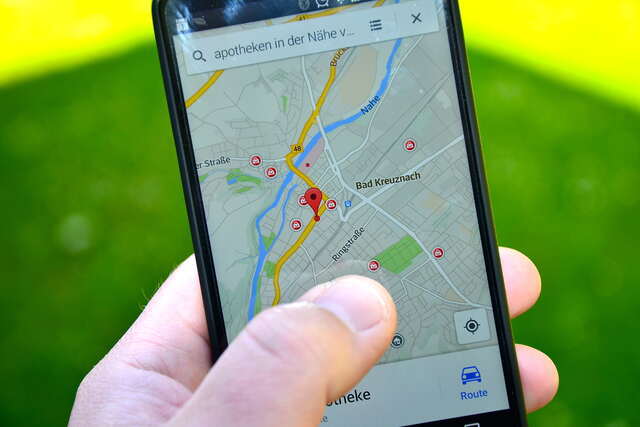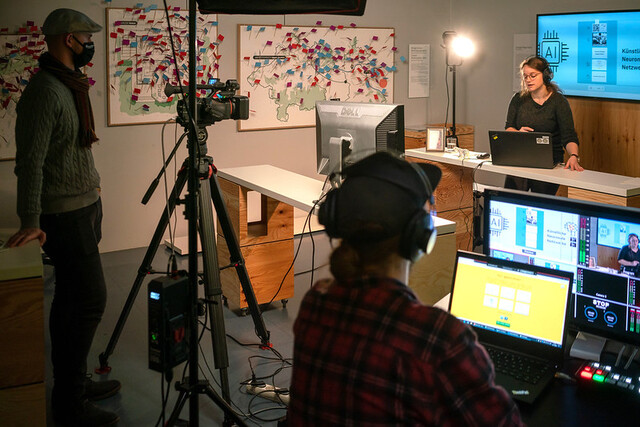The job for a tourist guide has traditionally been a role steeped in personal interaction and storytelling, where guides brought historical sites and cultural landmarks to life through their knowledge and charisma. The old-fashioned tourist guide, with his stack of cards and storytelling abilities, is becoming less and less common as a result of technological breakthroughs. This article explores the ways in which digital tools are changing the tourism industry, the new avenues that are opening up for guides, and the unique opportunities that are available in different parts of the world. These opportunities include jobs for tour guides abroad, opportunities for female leads, guiding jobs in Europe, and jobs for tourist guides in Pakistan. Additionally, there are roles available in specialized sectors such as eco-tourism and adventure tourism.
Table of Contents:
The Evolution of the Tourist Guide Role
Traditionally, tourist guides have been the human touchpoint between travelers and their destinations. They offer historical context, cultural insights, and individual tales that enhance the travel experience. However, digital technology has introduced new dimensions to this role. With smartphones, GPS, and multimedia applications, tourists now have access to a wealth of information at their fingertips, which both challenges and complements the traditional guide’s role.
Interactive Apps and Virtual Reality
One of the most significant technological advancements is the rise of interactive apps and virtual reality (VR). Apps like Google Earth and various augmented reality (AR) platforms enable tourists to explore landmarks and cultural sites virtually before visiting. This technology allows guides to enhance their storytelling with immersive experiences. For instance, a VR tour of ancient Rome can provide a historical context that enriches the on-site experience. Guides who can integrate these technologies into their tours will have a competitive edge, offering a more engaging and educational experience.
Digital Maps and GPS

GPS technology has transformed how guides lead their tours. Digital maps can now provide real-time information on attractions, routes, and points of interest. This allows for greater flexibility in tour planning and execution, enabling guides to offer personalized experiences based on real-time data. Additionally, GPS can help in ensuring the safety and convenience of tourists, making it easier for guides to manage groups in crowded or complex environments.
New Opportunities for Tourist Guides
The integration of digital technology into tourism opens up a range of new opportunities for those in the profession. Such as, advancements in mobile apps for real-time travel information and personalized tour experiences. Here are some of the emerging prospects:

Virtual Tours and Remote Guiding
The concept of virtual tours remote guiding has gained popularity, particularly in the wake of the COVID-19 pandemic. This trend is likely to continue, with guides offering remote experiences via video calls or pre-recorded content. This presents an opportunity for guides to reach a global audience without the need for physical travel. For those considering international tour guide jobs, this could mean the ability to cater to clients from different parts of the world without leaving their own country.
Specialization and Niche Markets
Digital tools also allow guides to specialize in niche markets. For example, a guide can focus on specific interests such as culinary tours, historical reenactments, or eco-tourism, using digital platforms to market their expertise. This specialization can help attract tourists looking for unique experiences and can be particularly beneficial for female guides or those in less prominent tourist destinations.
Enhanced Marketing and Personal Branding
The rise of social media and online marketing platforms offers tourist guides new ways to promote their services. Guides can use platforms like Instagram, YouTube, and TikTok to showcase their tours, share testimonials, and build a personal brand. This is especially advantageous for those looking to establish themselves in competitive markets like Europe or those seeking international tour guide jobs.
Regional Opportunities in Tourist Guiding
International Tour Guide Jobs

The global tourism industry offers a myriad of opportunities for international tour guide jobs. Guides can work with multinational tour companies or become freelance operators offering specialized tours. Technology facilitates this global reach by providing tools for remote communication and marketing. International tour guides need to be tech-savvy, with skills in digital marketing, virtual tour platforms, and multilingual communication to cater to diverse clientele.
Job for Tourist Guide Female
There is a growing recognition of the need for diversity and inclusivity in the tourism industry. Women have increasingly taken on roles in various fields, including tour guiding. The digital age has further leveled the playing field, with online platforms enabling female guides to connect with clients and showcase their expertise globally. Programs and initiatives promoting gender equality in tourism offer additional support, helping female guides gain visibility and access to opportunities that might have been less accessible in the past.
Tour Guide Jobs in Europe
Europe remains one of the most sought-after destinations for tourists, making it a hotspot for tour guide jobs in Europe. Digital technology plays a significant role in this market, with guides leveraging online booking systems, digital marketing strategies, and interactive tour apps to enhance their services. In Europe, guides can offer a range of experiences from historical tours of cities like Rome and Paris to scenic tours of the Alps. The demand for tech-savvy guides who can integrate digital tools into their services is high, providing ample opportunities for those with the right skills.
Job for Tourist Guide in Pakistan
In Pakistan, the tourism industry is burgeoning, with an increasing number of tourists visiting its historical sites, natural landscapes, and cultural landmarks. The job for a tourist guide in Pakistan is evolving as well. Guides in Pakistan can benefit from digital technology by using apps to provide detailed information about local sites, creating virtual tours to attract international tourists, and utilizing social media to market their services. As the industry grows. There is a need for well-trained guides who can blend traditional knowledge with digital tools to offer enriched experiences. Moreover, this combination of skills will help in attracting a wider audience.
Skills and Training for the Modern Tourist Guide
To thrive in this digital age, tourist guides need to adapt and acquire new skills. Here are some essential competencies for modern guides:
Digital Literacy
Understanding and utilizing various digital tools is crucial. Guides should be proficient in using GPS systems, virtual tour software, and social media platforms. Training in these areas can be obtained through online courses and workshops.
Multilingual Abilities
With the global nature of tourism, multilingual skills are highly beneficial. Guides who can communicate in multiple languages are more attractive to international clients.
Marketing Skills
Effective use of digital marketing tools to promote services and build a personal brand is increasingly important. Guides should learn about SEO, content marketing, and social media strategies.
Customer Service Skills
Despite technological advancements, the personal touch remains vital. Excellent customer service skills, including empathy and communication, are essential for creating memorable experiences.
Conclusion
Digital technology is causing a major revolution in the tourist guide profession. Technology is changing the profession in fascinating ways, from new specialties and global reach to virtual tours and improved marketing prospects. Adopting modern tools and learning new skills will be essential for success for anyone interested in tour guide jobs abroad, female tour guides, or chances in particular regions such as tourist guide positions within Europe and tourist guide jobs in Pakistan. Technology integration will present creative methods to improve the traveler experience and increase opportunities for guides worldwide as the sector develops.







